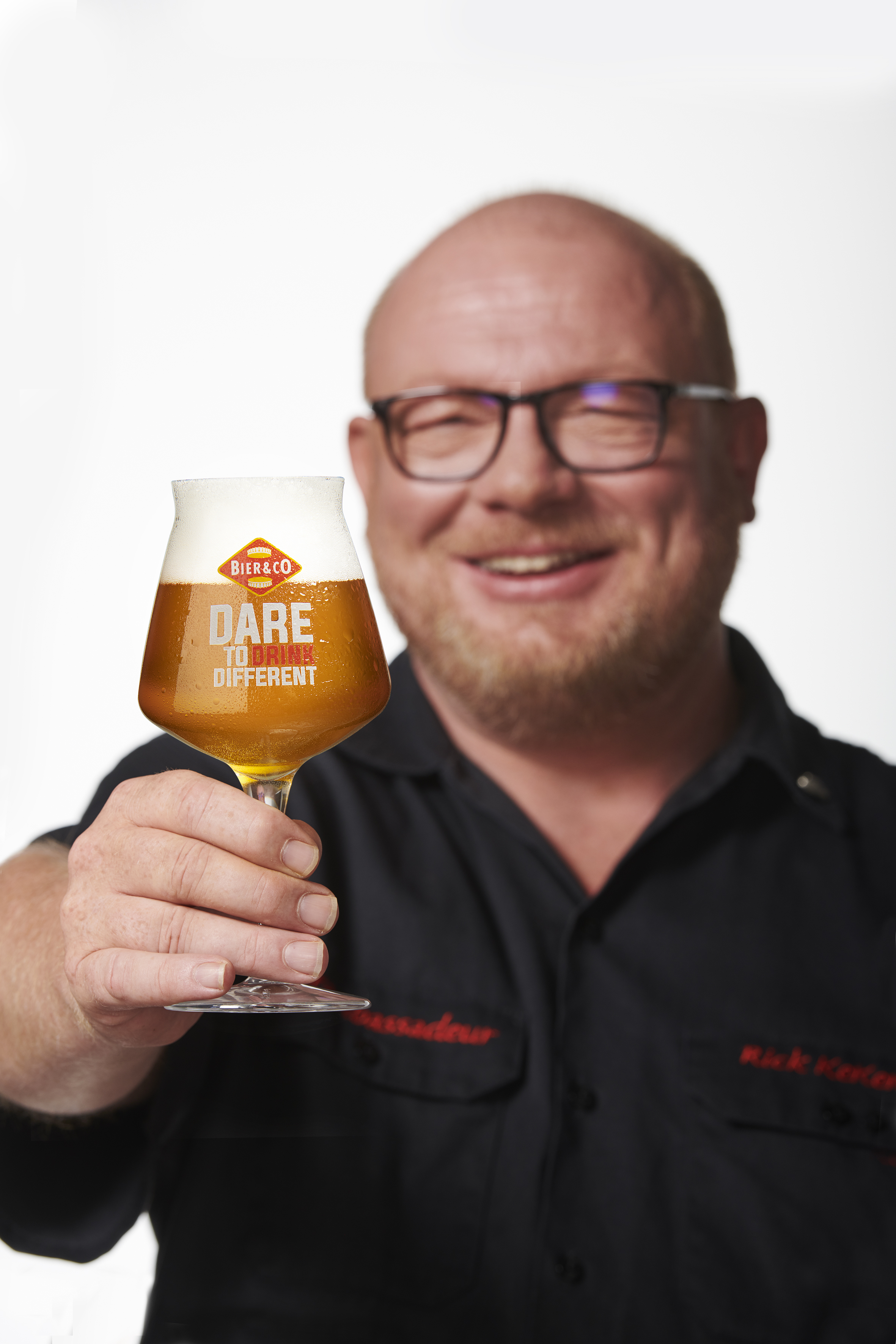Beer with allergies or a diet, will it work?
Posted by Rick Kempen, beer ambassador Beer&cO on 23rd May 2022
Can you drink beer with an allergy or diet?
Beer has traditionally been a foodstuff - centuries ago an average Dutchman drank a few liters of it a day, not only because it was a safe drink (during brewing it is boiled and all bacteria are eliminated), but mainly because it left a lot of unfermented sugars. Now let sugar be the fuel for life! In addition to sugar, beer also provided minerals and vitamins - it still does - which significantly eased the hard medieval life. Today, we no longer see beer as a foodstuff but as a stimulant - but in our neighbouring countries it is different. Belgians, Germans and Czechs know that beer is part of a balanced and sensible diet, if enjoyed in moderation. But that is not what we are talking about today!
Food Allergies
There is a group of consumers for whom drinking beer is not at all natural: people with celiac disease, or gluten intolerance. Beer can contain gluten. Gluten is a protein that occurs naturally in various cereals such as wheat, rye, barley and spelt. These grains are most commonly used in beer making. During malting, much of the gluten is broken down but traces of it often remain. People with celiac disease are intolerant to it: it is an autoimmune disease in which the intestinal lining is damaged. This disrupts digestion and can cause deficiencies in iron, calcium and vitamins, among others.
The Dutch Celiac Association (NCV) advises against drinking beer without a gluten-free logo. Not everyone with celiac disease reacts the same to a particular product and so not everyone will have symptoms, but prevention is best here. In recent years, several techniques have been developed to produce gluten-free beer so that there is now guaranteed gluten-free beer on the market: mainly pilsners, but also beers with a different taste. So we have a gluten-free lager like Mongozo's, as well as a gluten-free Pale Ale from BrewDog and even a ready-made beer package with four different gluten-free beers!
For people with lactose intolerance, beer is safe, with a few important exceptions: milk stout and pastry stout, as well as many Hazy IPAs. In these, lactose, or milk sugar, is added to make the beer creamier and sweeter.
Vegetarians and vegans
In principle, there is no reason for vegetarians or vegans not to drink beer: after all, there are no animal substances on the ingredient list. Exceptions are the previously mentioned beers that contain lactose. Not only people with lactose intolerance should avoid them, vegans don't like them either. But then, do we not know any animal ingredients in beer at all? In earlier times, the question was different. For beer to be beautifully clear, it must be clarified: once the sugars from the grains have dissolved in warm water, that sugar-rich liquid (wort) must be stripped of the last small, solid components. Before the wort was boiled, therefore, people added fresh proteins, such as gelatin or fish glue (also known as isinglass) to which the solids adhered and then settled to the bottom. Fine for the beer lover but a problem for the vegetarian (gelatin) and vegan (gelatin and fish glue).
Unlike beer, even today many fruit juices and wines are clarified using animal proteins. In fact, today almost all breweries in the world use machine processes to clarify their beer: centrifuges and state-of-the-art filters make the beer crisp and clear without the use of animal additives. Ireland's famous Guinness brewery only recently took this step: until then, they were using isinglass extracted from fish swim bladders to do the trick. Guinness Stout has since even been labeled vegan, something that many beers brewed in the United Kingdom or the Republic of Ireland boast.
That label did not come without a fight, and it was because of the yeast. There were heated debates between proponents and opponents, until the president of the Irish Vegan Society gave his blessing to the product: yeast is simply a single-celled fungus and therefore does not belong to the animal kingdom. Relief was breathed on both sides of the debate table, after which people headed to the pub cheering.
For the beer lover who wants to go vegan, we have put together a special beer box. All the beers in this box you can drink with confidence. They are vegan friendly and beastly delicious (sorry, we couldn't resist).
Diabetics
What exactly about beer and diabetes? Alcohol is made from sugar, which in turn is made from the starch of cereal grains. There is no such thing as beer without residual sugar: however, there are beer styles that have much less residual sugar. Saison, for example: the specific yeast used here achieves a sky-high conversion rate. This also makes the beer dry in mouth feel, but sugar-free it is by no means - and alcohol lowers blood sugar levels. According to the Diabetes Fund, "Low blood sugar ('hypo') in diabetes is risky. How quickly this happens varies from person to person and situation to situation. It can be within an hour, but also for example only at night - and then you cannot intervene. It may therefore be necessary after alcohol consumption in the evening to take extra carbohydrates before bed to prevent a nighttime hypo. By checking your blood sugar yourself, you learn how your body reacts to alcohol and can take it into account. Then there's no reason not to have a beer."
The same advice applies to diabetics as to other consumers: limit drinking alcohol to one glass per day. The Knowledge Center for Beer gives the carbohydrate count of a number of beers on its website. There is also a special page with information on alcohol and diabetes: https://www.kennisinstituutbier.nl/product/scheurblok-diabetes-alcohol

This blog is copyright of Uiltje and may not be reused.

